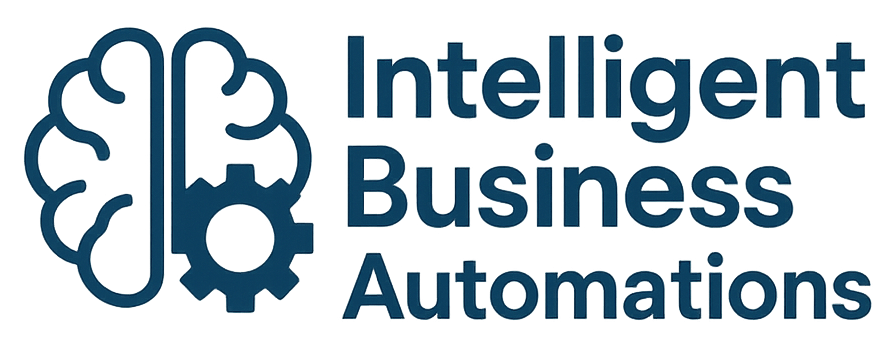AI Lead Scoring for Small Businesses
- Learn what lead scoring is and why it matters for small business sales and marketing.
- Discover how AI evaluates leads using behavioral and demographic data.
- Explore practical tools and CRM integrations that make AI lead scoring usable for small teams.
- Get actionable tips for optimizing your lead scoring model over time.
Understanding Lead Scoring and Its Importance
What is lead scoring?
Lead scoring is a method for ranking potential customers based on how likely they are to buy from you. It usually involves assigning a numerical score to each lead based on things like engagement, demographics, and actions they’ve taken.
Traditional lead scoring is often manual — like adding 10 points for downloading a brochure or subtracting 5 if they’re in the wrong industry. It can be helpful, but it’s also time-consuming and open to human error.
Why lead scoring matters for small businesses
- Focus your time where it counts: Prioritize the leads most likely to convert so you don’t waste energy chasing the wrong people.
- Align sales and marketing: Everyone on your team gets clarity on who qualifies as a good lead.
- Work more efficiently: Automate the busywork and move faster, even with a small team.
AI Algorithms for Lead Evaluation
How AI changes the game
While traditional systems rely on rules you set manually, AI-based lead scoring learns from your actual customer data. It studies what’s worked in the past — like who signed contracts or made purchases — and uses that to rank new leads automatically.
Common AI models used in lead scoring
- Logistic regression: A statistical model that predicts whether a lead will convert based on past patterns.
- Decision trees: Think of these like flowcharts that guide predictions by filtering leads through yes/no questions.
- Random forests: A mix of decision trees that vote on which leads are most likely to be successful.
Bottom line? AI makes scoring more accurate over time — and it keeps improving as new data comes in.
Data Points Used: Engagement, Demographics, Intent
Behavioral engagement
- Number of website visits
- Email opens and link clicks
- Time spent on your site or specific pages
Demographics and firmographics
- Job title and seniority
- Industry and company size
- Location
Purchase intent signals
- Requesting a quote or demo
- Comparing features or pricing plans
- Returning frequently within a short time window
AI weighs all of these based on real conversion data. If past leads who asked for demos converted more often, the system starts scoring demo requests higher. It’s not guesswork — it’s learned behavior.
Integrating Lead Scoring with CRM Systems
CRM platforms that support AI scoring
You don’t need a huge tech stack to take advantage of AI. Many popular tools already have lead scoring built in:
- HubSpot: Uses predictive scoring inside its CRM to highlight promising leads.
- Zoho CRM: Offers AI models that analyze sales history and engagement.
- Salesforce: With Einstein AI, you can forecast which leads are most likely to convert.
Smart workflows with AI
- Automatically assign high-scoring leads to your best salespeople.
- Send real-time notifications to your team when a lead takes key actions (like requesting a demo).
- Keep everything centralized — no more bouncing between tools.
A CRM with AI-powered scoring eliminates dropped leads and ensures your team responds quickly to warm prospects.
Practical Examples and Tools
Real-world small business scenarios
- Local service business: Getting dozens of contact form submissions? Use AI to filter for those most likely to book appointments.
- Ecommerce shop: Want to target repeat visitors? Train your scoring model to flag those with high purchase intent.
Tools to explore
- Freshsales and Pipedrive: Include built-in AI scoring to help prioritize leads instantly.
- Use Zapier for custom setups: If you have a niche CRM, you can still connect AI-powered tools through automation platforms like Zapier — no coding required.
What AI scoring looks like in action
- See lead scores right in your CRM dashboard.
- Tag or label leads automatically based on their score — high, medium, low.
- Sort your contact list and prioritize follow-ups visually.
Tips to Optimize Lead Scoring Models
Start with a goal
Are you scoring leads for demo signups? Purchases? Newsletter growth? Choose one outcome to optimize for. That will help guide your model’s focus.
Sales and marketing need to be on the same page
Have clear discussions about what makes a lead “qualified.” If everyone agrees on what good looks like, AI can do a better job predicting who fits the mold.
Retrain your model often
As you close more deals, feed those results back into the system. AI needs up-to-date examples to keep improving.
Test and improve
- Compare your AI model’s performance to manual scoring.
- A/B test how much faster high-score leads convert compared to low scores.
- Tweak the model regularly as your business evolves.
Conclusion
AI lead scoring isn’t just for big companies anymore. Small businesses can now access smart tools that learn from real customer behavior to rank leads more accurately — giving your team a major boost in focus and follow-through.
With practical platforms and easy integrations, you can get started without a tech team. Work smarter, respond faster, close more deals — all with less guesswork.
Learn how we help small businesses integrate smart technology on our Solutions page.
Want a hands-on partner to guide your AI efforts? Explore our Coaching services.
